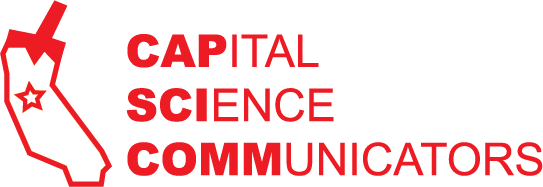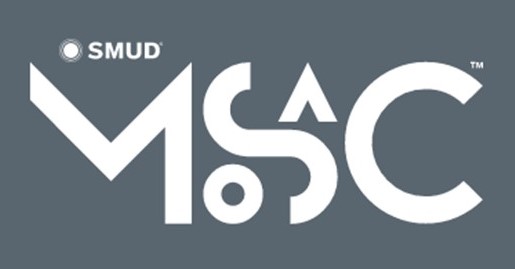Communicating Science Across Disciplines
Effective science communication is fundamental for carrying out innovative, interdisciplinary research in biotechnology. It is also essential for building strong professional networks and for connecting with policy makers, investors and members of the community. The support of diverse groups in society is needed to bring new technologies to market. It is vital that these non-specialist groups understand what STEM innovators are trying to do in order conduct appropriate risk assessments and highlight technology benefits.
The Biotechnology Program and DEB provide a variety of opportunities for early career scientists to learn and practice science communication skills, as well as gaining basic knowledge of science policy making. Central to this effort are the annual offerings of fall training workshops on both Science Communication and Science Policy. The annual Biotech Retreat showcases short DEB student "STEMTalks" and a poster session that emphasizes creative communication for non-specialist audiences with prizes for the best science communicators, as well as holding a bioethics discussion that touches on the intersection of innovation and regulation. During winter quarter, the DEB263 core course teaches doctoral students how to use social media professionally, as well as providing practice in pitching a biotech business plan to an interdisciplinary group.
Promoting Public Science Literacy
Through our affiliated Biotech SYSTEM K-14 STEM outreach consortium, we host a series of annual research seminars for high school students and teachers, where DEB and BLAST scholars give five-minute STEMTalks and lead small groups on short walking tours. DEB and BLAST scholars are also regularly invited to give research talks to non-specialist audiences in larger venues, such as the annual Teen Biotech Challenge awards symposium (~250 community members and secondary students). Last, but not least, DEB students perform hands-on experiments with hundreds of members of the public and campus community at our annual Picnic Day outreach event.
The Biotechnology Program and affiliated faculty also aim to promote public literacy and science-based policy making through social media platforms and participation in civic conversations:
- AggieVideo
- Bluesky @ucdavisbiotech.bsky.social
- Facebook - @UCDBiotechProgram and @UCDavisResearch
- X (formerly Twitter) - @UCDavisBiotech, @yggdrasil13751, @UCDavisResearch, @jan_nolta, @plgepts, @BioBeef and many others...
- YouTube (pre-2020)
Beyond biotechnology, DEB and BLAST scholars interested in science communication activities and connecting with policy makers are encouraged to check out these local efforts to improve public science literacy:

Science Says
Science Says is a student-led group of science communicators launched under the auspices of the Institute for Food and Agricultural Literacy (https://ifal.ucdavis.edu/) and currently supported by the Innovation Institute for Food and Health (https://foodaghealth.solutions/).

Capital Science Communicators
Capital Science Communicators is a non-profit group in the greater Sacramento region that sponsors Science Cafés and other activities for stimulating public discourse around science topics of broad community interest.

SMUD Museum of Science and Curiosity (MOSAC)
The SMUD Museum of Science and Curiosity (MOSAC) is a public science museum located along the Sacramento riverfront that opened in fall 2021. The UC Davis Biotechnology Program director emerita, Dr Judy Kjelstrom, is a board member. She and current director, Dr. Denneal Jamison-McClung, serve on the MOSAC education committee.
UC Grad Slam
DEB students are encouraged to enter the annual UC system-wide science communication competition, Grad Slam, which was launched in 2015. Graduate students must explain their thesis research for a general audience in three minutes - the ultimate elevator pitch!
A local round of judging occurs at UC Davis and the chosen first-place winner is sent forward to represent the campus at the UC system-wide Grad Slam competition. The DEB has had many strong competitors over the years, including the alumni listed below. Since the launch of Grad Slam in 2015, we have had three students move forward to represent the campus in the broader competition and one grand prize winner, Dr. Katie Murphy.
2022
- Savannah Free, Integrative Genetics & Genomics, "Partners in Crime: Tumor Cells and Platelets" (2nd Place at UC Davis)
2019
- Katie Murphy, Plant Biology, "Call the Plant Doctor" (1st Place at UC Davis, UC Grand Prize Winner)
2017
- Sam Westreich, Integrative Genetics & Genomics, "A Better Understanding of the Gut Microbiome through Metatranscriptomics" (1st Place at UC Davis)
- Donald Gibson, Integrative Genetics & Genomics (Finalist at UC Davis)
- Marc Pollack, Microbiology (Finalist at UC Davis)
2015
- Ryan Dowdy, Food Science and Technology (1st Place at UC Davis)